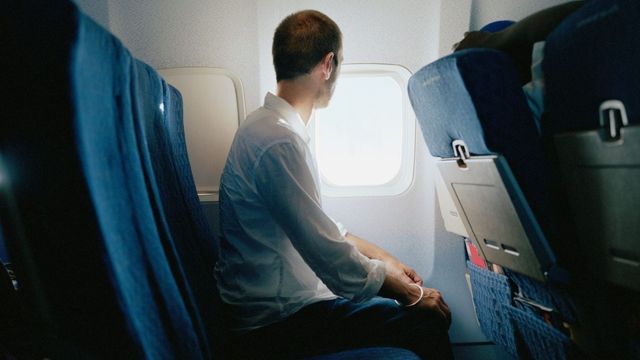Fear of flying, also known as aviophobia, affects a significant portion of the population, making air travel a distressing experience. The fear may be mild for some, but it can be debilitating for others, leading them to avoid flying altogether. Hypnosis therapy offers an alternative approach to managing and even overcoming aviophobia. Hypnosis helps individuals tap into their subconscious minds, addressing the underlying causes of fear and anxiety associated with flying. Here, we will explore how hypnotherapy for fear of flying works, its benefits, & how effective it can be in helping individuals conquer their phobia.
What is Hypnotherapy for Fear of Flying?
Hypnotherapy for fear of flying is a therapeutic technique that uses guided hypnosis to help individuals reframe negative thoughts and feelings related to flying. During hypnosis, the mind enters a state of deep relaxation and heightened focus, allowing the individual to become more open to suggestions. Hypnosis for aviophobia addresses irrational beliefs, fears, or traumas associated with air travel. A skilled hypnotherapist works with the client to identify the cause of their anxiety and give positive suggestions and visualizations to replace fear with a sense of calm and control. Over time, this can help the individual develop a more relaxed and confident mindset toward flying.
Benefits of Hypnosis Therapy for Fear of Flying
Hypnosis therapy for fear of flying presents many benefits that contribute to improved mental & physical well-being. This therapeutic approach not only helps individuals confront their fears in a safe, controlled setting but also enables them to develop coping mechanisms for managing anxiety associated with flying. Below are some of the critical benefits of hypnotherapy for fear of flying:
1. Controlled Environment: Hypnosis therapy allows individuals to face their fears without the immediate stress of actual flying, creating a safe space for exploration and healing.
2. Addressing Deep-Seated Fears: This therapy targets the subconscious mind, helping to identify and resolve past experiences or irrational beliefs contributing to aviophobia.
3. Reduction of Stress and Anxiety: Many clients report feeling significantly more relaxed and composed after sessions, leading to decreased anxiety levels that can positively affect their overall health.
4. Physical Health Benefits: Hypnosis for flying phobia can facilitate a more peaceful and enjoyable flying experience by calming the body’s stress responses, such as elevated adrenaline, heart rate and muscle tension.
5. Non-Invasive Nature: Hypnosis therapy focuses on long-term solutions without medical intervention, unlike pharmaceutical options that may carry side effects or only provide temporary relief.
6. Empowerment and Coping Mechanisms: Hypnotherapy encourages individuals to build inner strength, empowering them to take control of their fears rather than feeling overwhelmed.
7. Personalized Approach: Each hypnosis session can be tailored to address specific fears, such as turbulence, claustrophobia, or heights, making the therapy highly individualized.
8. Enhanced Confidence: With continuous practice and support, many individuals report a newfound confidence when flying, transforming it from a stressful ordeal into a manageable and enjoyable experience.
These benefits illustrate the potential of hypnosis therapy as a transformative tool for those struggling with aviophobia, ultimately leading to a healthier mindset and improved quality of life.
How Effective is Hypnosis for Flying Phobia?
The effectiveness of hypnosis for flying phobia varies from person to person, but many individuals have found significant relief from their fears through this method. Some people may experience a reduction in anxiety after just a few sessions, while others may require more time to overcome their phobia fully. Research suggests hypnosis can be particularly effective when combined with other therapies, such as (CBT) and cognitive behavioral therapy. Studies have shown hypnotherapy can help individuals change their emotional responses to flying, making it easier to manage fear and anxiety. Overall, hypnosis for fears and phobias can offer lasting results for those who are committed to the process and willing to work with a qualified hypnotherapist.
How Does Hypnosis Address Hypnosis for Fears and Phobia?
Hypnosis therapy works by accessing the subconscious mind, where fears and phobias are often deeply ingrained. Unlike conscious concerns that we can easily articulate, many phobias, including aviophobia, are rooted in subconscious beliefs or past traumas. During a hypnosis session, the individual is guided into a deeply relaxed state, where the subconscious mind becomes more receptive to positive suggestions. The hypnotherapist may use calming imagery, affirmations, and specific recommendations to reframe negative associations with flying. By doing this, hypnosis for fears and phobia helps to “reprogram” the mind, replacing fear-based thoughts with ones of safety and control. Over time, this process can significantly reduce or eliminate the fear of flying.
Contact the Best Hypnotherapist in Los Angeles
If you are struggling with a fear of flying, seeking professional help from a qualified hypnotherapist is a crucial step toward overcoming your phobia. Ava Evans, a highly experienced and board-certified hypnotherapist in Los Angeles, specializes in helping individuals conquer their fear of flying through personalized hypnotherapy sessions. With more than 21 years of experience, Ava Evans uses effective hypnosis techniques to address fears and guide you toward a more relaxed and confident approach to flying.
Contact Ava Evans today to start your journey toward a calmer and more enjoyable flight experience!


Request Appointment